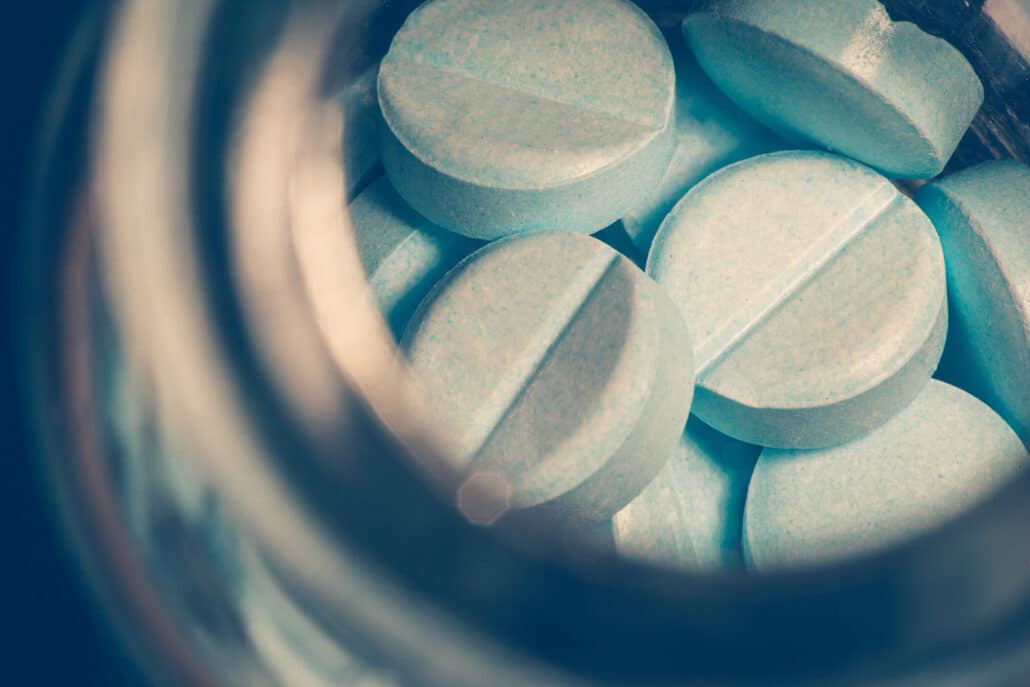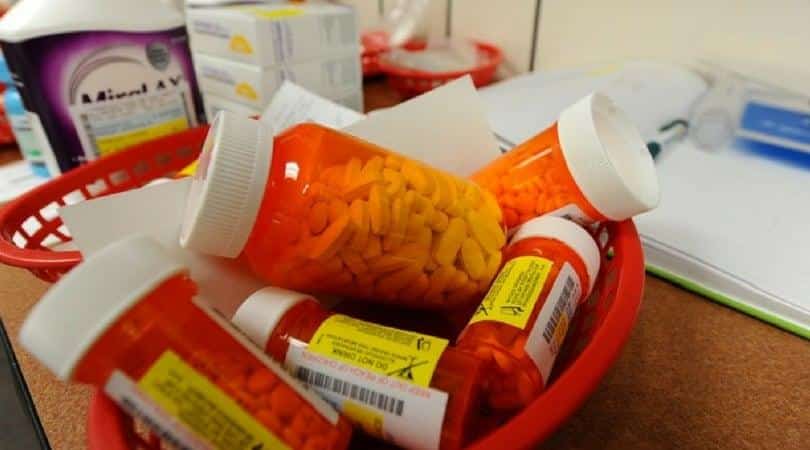For more than a quarter-century, an unprecedented public health crisis has gripped the United States. Between 1999 and 2021, the Centers for Disease Control and Prevention reported a staggering 645,000 fatal overdoses involving opioid drugs and related drugs. Some 220 people died each day in 2021 alone. Another three million Americans are estimated to be struggling with addiction to these substances.

The opiate crisis is an overwhelming tragedy, but it’s not inevitable. It’s important to understand both the challenges and the resources available to overcome them to break the cycle. If you or someone you love is suffering from opiate addiction, a medically supervised detox program can provide a path to healing and recovery.
Table of Contents
- 1 Understanding Opiate Dependency
- 2 The Urgency of Detox for Opiate Users
- 3 What To Expect During Opiate Detox
- 4 Potential Symptoms of Opiate Withdrawal
- 5 Medications Employed in Opiate Detox
- 6 Benefits of Undergoing Detox in a Specialized Facility
- 7 Life Beyond Detox: Emphasizing Continuum of Care
- 8 Aftercare Planning: Post-Detox Strategies for Sustained Recovery
- 9 The Integral Role of Our Treatment Center in Opiate Detox
- 10 Conclusion
- 11 Resources and Immediate Support
Understanding Opiate Dependency
Also known as opioids, opiates are a class of substances derived from the opium poppy. They include many common prescription opioids like hydrocodone (Vicodin®), oxycodone (OxyContin®, Percocet®), oxymorphone (Opana®), morphine (Kadian®, Avinza®), codeine and fentanyl, and other pain relief drugs, such as hydrocodone and oxycodone, as well as street drugs like heroin and fentanyl. These drugs work by binding to the opioid receptors in the brain, activating the same reward pathway that releases feel-good chemicals when you accomplish goals or engage in pleasurable activities. While this can suppress pain signals within the body, it also produces characteristic feelings of euphoria.
The brain is naturally hard-wired to seek out activities that trigger this reward pathway, but the resulting effects quickly become less pronounced. As tolerance develops, users are often compelled to keep taking higher and more frequent doses. This eventually leads to physical dependence, which occurs when chemical changes in the brain render it unable to function normally without the drug.
When physically dependent users stop taking opiates, they experience an array of unpleasant physical and mental withdrawal symptoms. The desire to avoid these symptoms of opioid withdrawal is a primary driver of drug addiction, resulting in compulsive drug-seeking and an inability to stop using despite negative consequences.
The Urgency of Detox for Opiate Users
Living with addiction is a terrible burden, but that’s hardly the only reason to seek treatment as soon as possible. Prolonged use of opiates is associated with a variety of chronic physical and mental health issues. What’s more, the risk of opioid overdose is ever-present. Illicit drugs are increasingly being adulterated with fentanyl and other ultra-potent synthetic opioids, fueling a substantial rise in accidental overdoses.
Unfortunately, between intense cravings and nearly unbearable opiate withdrawal symptoms, quitting without assistance is exceptionally difficult — and potentially dangerous. Many people ultimately relapse, deepening feelings of discouragement and hopelessness. Medically supervised opiate detox gives you the support you need to overcome this barrier, allowing you to move on to the next phase of your recovery.

What To Expect During Opiate Detox
The journey to sobriety can only begin once your body has entirely rid itself of opioids and their side effects. Medically supervised detox is designed to help you do just that, serving as a bridge between addiction and long-term recovery. In general, opiate detox programs consist of three main phases.
Initial Assessment
Upon arriving at an opiate detox center, treatment specialists will evaluate your current health and review your history to assess the severity of your dependence. This helps them better understand your needs and begin developing a treatment plan tailored specifically to you. You’ll also be able to ask questions and get a better idea of what to expect during your stay.
Medical Stabilization
Once the initial assessment is completed, you’ll be closely monitored throughout the detox process to ensure you experience as little discomfort as possible. Medical professionals may use a number of medications and other interventions as necessary to ease cravings and alleviate withdrawal symptoms.
Emotional and Psychological Support
While your physical health is always a top priority, the mental and emotional challenges of opiate detoxification can be profound. That’s why detox centers employ a multifaceted approach that includes one-on-one counseling and other therapies, empowering you to confront your fears, anxieties, and other negative emotions in a controlled, supportive environment.
Potential Symptoms of Opiate Withdrawal
In users who are physically dependent on opiates, abruptly stopping use can trigger the onset of acute opiate withdrawal. For short-acting opioids like heroin and oxycodone, this phase typically starts within 12 hours of the last dose and lasts up to 10 days. For morphine, methadone, and other long-acting opioids, withdrawal generally occurs within one to three days and may last several weeks.

The acute phase of opiate withdrawal usually begins with flu-like physical symptoms, including sweating, chills, stomach cramps, diarrhea, nausea, and fatigue. Many people also experience insomnia, anxiety, agitation, restlessness, and persistent cravings.
For some people, this initial phase is the end of the story. For many others, however, it’s followed by a complex set of symptoms known as post-acute withdrawal syndrome (PAWS). The symptoms of PAWS are wide-ranging and often fluctuate in intensity or appear and disappear seemingly at random. Among the most common symptoms are:
- Anhedonia and depression
- Anxiety and irritability
- Poor memory and cognitive function
- Strong and persistent cravings
- Disturbed sleep patterns
Medications Employed in Opiate Detox
Managing the unpleasant and disruptive symptoms of opiate withdrawal is the most essential part of detoxification. Medical detox centers have several different medications available to make this process easier, each of which serves a distinct purpose.
Methadone
Methadone is a synthetic opioid that acts on the same receptors as other opiates, virtually eliminating cravings and withdrawal symptoms. Since it lasts longer and acts more slowly, however, it doesn’t produce euphoria in physically dependent patients. This makes it a great tool for gradually tapering down to lower and lower doses until it can be discontinued with minimal discomfort.
Buprenorphine
Buprenorphine is known as a partial opioid agonist, which means it binds to opioid receptors but doesn’t activate them fully. Like methadone, this allows it to greatly reduce withdrawal symptoms and cravings without activating the reward pathway and producing euphoria. However, because it can cause precipitated withdrawal, it’s usually not administered until symptoms have already begun.
Naltrexone
While methadone and buprenorphine alleviate cravings and withdrawal symptoms by activating opioid receptors, naltrexone works by blocking them. It’s used after the acute withdrawal phase to aid in abstinence by easing opioid cravings and suppressing the euphoric effects of other drugs.
Benefits of Undergoing Detox in a Specialized Facility
Breaking free of opiates is a formidable challenge, but medical detox facilities are uniquely designed to help you succeed. Since they’re staffed by licensed medical professionals, you can rest easy knowing your health will be constantly monitored. If you experience any complications or distress, you’ll receive appropriate treatment right away.
More importantly, instead of being surrounded by potential stressors and relapse triggers, you’ll be in an environment that keeps you focused on recovering and moving forward. Detox facilities offer a strong support network, encouraging you to start connecting with and relying on others.

Life Beyond Detox: Emphasizing Continuum of Care
Medically assisted detox is an invaluable first step in quitting opiates, but it’s not meant to be a standalone solution. Instead, the goal is to deliver urgent care to keep you stabilized until you’re well enough to progress to the rehabilitation phase of treatment. Depending on your needs, this can be provided in either an inpatient or outpatient setting.
The purpose of rehabilitation is to promote holistic healing and prepare you for life without drugs. Using a variety of therapies and other interventions, rehab programs assist you in developing healthy coping skills, addressing underlying mental health issues, and correcting problematic behaviors and thought patterns. Studies have consistently shown that this continuum of care leads to higher success rates and better long-term outcomes than either detox or rehab alone.
Aftercare Planning: Post-Detox Strategies for Sustained Recovery
Addiction can be managed with the right tools and support, but it can’t be cured. Consequently, it’s important to think ahead and ensure you’re set up for success once your detox and rehabilitation programs have been completed. Aftercare planning is a critical part of the recovery process that helps you anticipate future challenges and develop strategies to overcome them. The core components of an effective aftercare plan include:
Coping Skills
We can’t always control the things that happen to us, but we can control how we respond to them. That’s what good coping skills are all about. From mindfulness and meditation to journaling and exercise, choosing more productive ways to process stressful situations can help you avoid negative emotions and unhealthy behaviors.
Relapse Prevention Strategies
A key aspect of aftercare planning is identifying the specific people, places, emotions, and activities that your brain most strongly associates with substance use. These emotional, social, and environmental triggers can increase your risk of relapsing, so learning how to recognize them and respond appropriately is vital.
Goals and Aspirations
Boredom and aimlessness are major factors in substance abuse, so planning healthy and constructive ways to spend your time is very important. In addition, setting and achieving goals releases dopamine, providing a natural mood boost while building your confidence.
Ongoing Support
Recovery is a team effort. While continuing therapy is extremely helpful, it’s also crucial to build a robust social network that you can rely on for advice, support, and encouragement. In particular, groups like SMART Recovery and Narcotics Anonymous (NA) are excellent places to connect and share with people who understand what you’re going through.

The Integral Role of Our Treatment Center in Opiate Detox
Here at Long Island Interventions, a healthcare provider for patients who are suffering from opioid addiction or opioid use disorder and other drug use concerns and addiction treatment – our mission is to provide comprehensive and compassionate support throughout your journey to sobriety. We work with trusted affiliates to coordinate all aspects of your care, allowing you to focus on what matters most. Our dedicated addiction professionals are always available to answer your questions and help you find the resources you need.
Conclusion
Addiction can leave you feeling hopeless and overwhelmed, and sometimes is a life-threatening concern, but it’s never too late to make a change. With the help of a qualified opiate detox center, you can weather the storm of opioid withdrawal or undergo withdrawal management and begin building a more fulfilling, productive life without drug abuse and opioid dependence. If you’re ready to get started, call our helpline or use our confidential contact form to get in touch with our certified addiction specialists.
Resources and Immediate Support
With Long Island Interventions, you never have to face opiate addiction and recovery alone. In addition to our 24/7 helpline, we’ve compiled a collection of trusted resources you can depend on for information, guidance and support.
Confidential 24/7 Hotlines
- SAMHSA National Helpline: (800) 662-4357
- New York State HOPEline: (877) 846-7369
- LICADD Substance Use Hotline: (631) 979-1700
- Long Island Crisis Center Drug Line: (516) 481-4000
Substance Abuse Support Groups
Further Reading
- What Is Substance Abuse Treatment? | SAMHSA
- Recovery Is Possible: Treatment for Opioid Addiction | CDC.gov
- Recovery Resources | DEA.gov
- Opioid Use Disorder | Johns Hopkins Medicine
Drug & alcohol detox programs are not directly offered by Long Island Interventions. However, we do recognize that this type of addiction treatment is often necessary and vital to one’s long-term recovery from substance abuse. If you or a loved one require any services that we do not offer we would be glad to refer you to one of our trusted affiliate providers.

